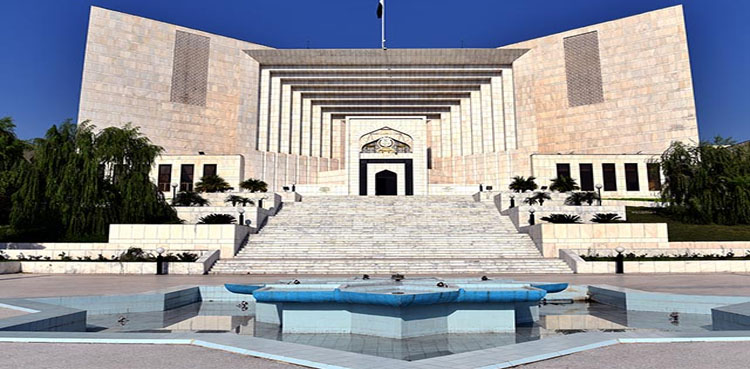
Al Qadir Trust Case: What are the Ordinances and Rules of Law?
”
A comprehensive report has come out regarding what the Ordinance and Rule of Law say about the case against the founding chairman of Pakistan Tehreek-e-Insaf.
Violation of National Accountability Ordinance (NAO), 1999
The provisions of the NAO criminalize bribery and corruption. Accepting land, funds, or any financial benefit under a “Trust” (Al-Qadir University Trust) without transparent documentation and following legal requirements amounts to misuse of authority and corruption.
The accused’s claim that “no personal gain was taken” is inconsistent when the transfer of valuable land and large sums of money took place without official audit or financial oversight.
Violation of Rules of Business, 1973:
The accused called it routine to present an “additional agenda item” in the cabinet meeting and said it was in accordance with the rules of business. But according to the Rules of Business, it is mandatory to provide the agenda items to the cabinet members in advance. No extraordinary justification was offered for the violation of this rule.
The secrecy and decision without discussion on such an important financial issue has raised questions about the transparency of the procedure.
Conflict of interest and abuse of public office:
According to the Constitution of Pakistan, public office holders are bound by the principles of honesty and trust. The lack of transparency in the approval of transactions involving personal associates of the accused (such as Malik Riaz) and the transfer of funds from the UK indicates a breach of these norms.
The Evidence Act Order, 1984:
The accused challenged the admissibility of key evidence, including the confidentiality agreement, as a forgery. But according to the law of evidence, documentary evidence must be verified by independent experts. Failure to conduct an alternative forensic analysis in this regard undermines the accused’s claim.
Role and Accountability of Cabinet Members:
The accused put the onus on the cabinet members, and said the supplementary agenda was approved unanimously. But under the rules of collective responsibility, the prime minister is ultimately responsible for the decisions of the cabinet.
Al-Qadir Trust as “Sham Institution”:
The formation and operation of this trust has failed to demonstrate public interest or transparency. Although claims are made to provide scholarships, the financial records presented do not meet the requirements under the trust rules.
Specific counterpoints to key claims
•Claim: £190 million was a private settlement and not related to the State of Pakistan.
• Counter-argument: The money came from assets frozen due to suspected corruption in the UK. State involvement and accountability was mandatory in their return. Not consulting the Ministry of Finance or the Ministry of Law in transferring funds is a violation of the NAO and the Rules of Business.
•Claim: No personal gain derived from land or funds.
•Counter Argument: As the founder of the trust, the accused retained significant control. Transfer of assets without competitive bidding or independent audit falls under the category of indirect personal gain, which is a violation of NAO provisions.
•Claim: Prosecutors withheld key evidence, including NCA documents.
• Counterargument: The accused’s legal team could have obtained these documents through judicial means, such as mutual legal assistance. Failure to do so indicates inaction on the part of the defense rather than malice on the part of the prosecution.
•Claim: Procedural lapses in the prosecution’s case, including unverified documents.
• Counter-argument: Although some documents lack procedural corroboration, evidence, such as land transfers, bank transactions, and witness statements, shows a continuum of financial irregularities linked to the accused.
Recommendations for prosecution
1. Forensic analysis and involvement of expert witnesses:
• Undertake forensic verification of disputed documents and engage international financial crime experts to verify the flow of funds and transfer of assets.
2. Focus on the breach of trust:
•Declare that the accused’s actions as a public official constituted a breach of trust against the best interest of the state.
3. Breach of Transparency and Accountability:
•Lack of official audits, absence of consultation with key ministries, and use confidentiality clauses to reinforce a narrative of deliberate invisibility.
This counter-narrative and legal strategy focuses on exposing procedural deficiencies, financial irregularities, and breach of trust under Pakistani law.
”


